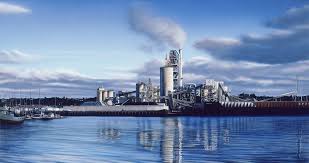1. Water treatment technology: Investing in innovative water treatment technologies can help improve access to clean drinking water and sanitation facilities.
2. Water infrastructure development: Investing in the development and upgrading of water distribution networks, water storage systems, and sewage treatment plants.
3. Desalination: Investing in desalination technologies can help provide clean drinking water in areas with limited freshwater resources.
4. Water reuse and recycling: Investing in technologies and systems for treating and reusing wastewater for irrigation, industrial purposes, or even drinking water.
5. Water filtration systems: Investing in advanced filtration systems that can remove contaminants and provide clean drinking water at the point of use.
6. Sanitation technology: Investing in innovative technologies for self-contained and portable sanitation solutions, especially in areas lacking access to proper sanitation facilities.
7. Water efficiency and conservation: Investing in businesses that offer water-efficient products and services, such as smart metering systems, leak detection technologies, or water-saving appliances.
8. Water monitoring and data analytics: Investing in companies that provide real-time water monitoring solutions and data analytics to identify and address water quality and scarcity issues.
9. Water education and awareness: Investing in organizations focused on educating communities on water conservation, hygiene, and sustainable water management practices.
10. Water-related social enterprises: Investing in social enterprises that address water and sanitation challenges in developing countries, such as providing affordable water filters or building community water infrastructure.
Please note that investment opportunities can vary based on factors such as geographical location, technological advancements, and market conditions. It is advisable to consult with a financial advisor or conduct thorough research before making any investment decisions.

